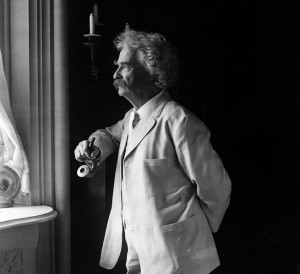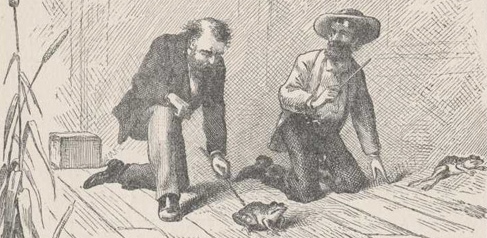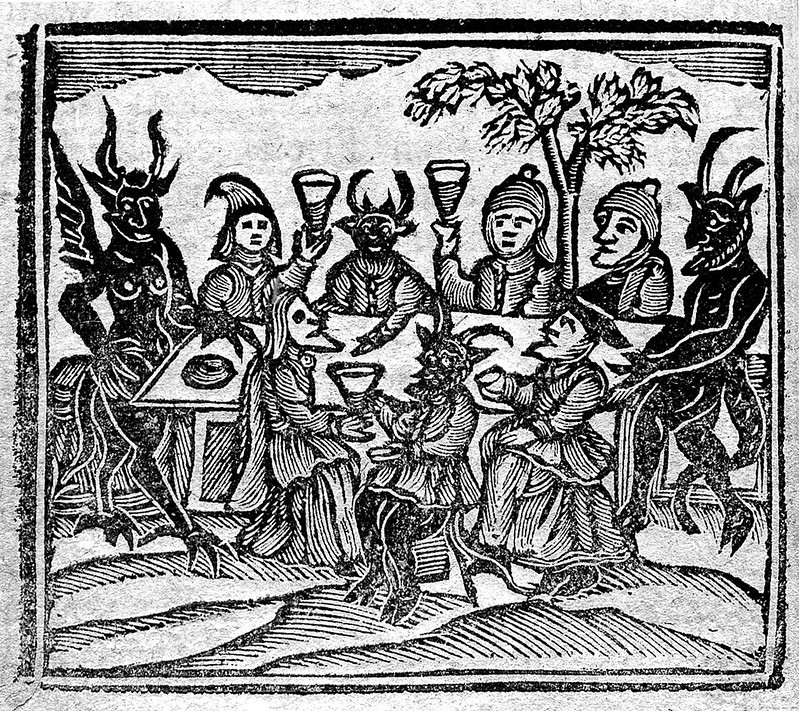 “History doesn’t repeat itself, but it often rhymes.” This saying is attributed to the infamous lower mid-western writer, Mark Twain (Samuel Clemens). While there is no direct evidence that Twain spoke or wrote this phrase, there was a direct experience that illustrated the concept with regard to Twain’s short story, “The Celebrated Jumping Frog of Calaveras County”.
“History doesn’t repeat itself, but it often rhymes.” This saying is attributed to the infamous lower mid-western writer, Mark Twain (Samuel Clemens). While there is no direct evidence that Twain spoke or wrote this phrase, there was a direct experience that illustrated the concept with regard to Twain’s short story, “The Celebrated Jumping Frog of Calaveras County”.
Upon learning of an ancient Greek story that mirrored his own, Twain wrote, “no occurrence is sole and solitary, but is merely a repetition of a thing which has happened before, and perhaps often…” The alleged “Greek” version, presented by a Professor Sidgwick of England, actually was Twain’s jumping frog story, included in a textbook for students learning to translate English texts into Greek.
English papers reproved Sidgwick for his omission, but he maintained his innocence, believing that the story was so well known that formal mention of it was unnecessary. Sidgwick personally related this to Twain in England around the turn of the century (1900), but still failed to acknowledge Twain in later editions of his textbook.

Twain is marked for his humorous and satirical work, the jumping frog swindle in particular. Lesser known is that he was highly critical of imperialistic political motivation, as well as a supporter of abolitionism. The following passage shares insight into Twain’s political philosophy:
“Why is it right that there is not a fairer division of the spoil all around? Because laws and constitutions have ordered otherwise. Then it follows that laws and constitutions should change around and say there shall be a more nearly equal division.”
This quote is reminiscent of ideology within national scale social movements like “Occupy Wall Street” and the efforts to bring accountability to the “too big to fail” banks. If one considers that the etymology of {the word} government is to control the mind, and that the economic system of capitalism was developed specifically with the interest of members of society already owning capital, there is no need to search for obscure and problematic conspiracy theories, because the facts are there for all to see. The constructs are tactics of division that are used to the advantage of the control structure. If there ever was a truly “free” market, this Great Experiment would likely look much different than it does currently, filled with problematic conflicts of interest, favored contracts, cronyism, and the use of public monies for anything besides what is in the public’s interest. When used in the context of the proletariat, the term socialism receives venomous criticism; when it relates to aristocracy, it is understood to be a privileged given.

Unfettered by a belly full of buckshot, Tammany J. Frog continues to hop around the parish. Tammany J. Frog was introduced by Covington Weekly in December of last year as a light-hearted symbol representing the operation of economic development in St. Tammany Parish, and because those who question Hydraulic Fracturing were referred to as loonies. Now, it’s Christmas in July as Helis Oil & Gas Company begins to prepare their exploratory well near Lakeshore High School. The Parish administration plays at listening to the public while reviewing grant money, writing private bonds (the details are not disclosed to the public) and declaring exemptions and incentives to friendly neighborhood corporations and developers, while small business owners struggle to pay their bills and taxes with little relief.

No real operational difference exists between social welfare and corporate welfare; they both fall within the definition of socialism, and they are both forced sharing. Time will tell what St. Tammany Parish’s historic rhyme sounds like.
Timothy Achan Gates is a local writer and musician. Contact: codexproventus@gmail.com.



